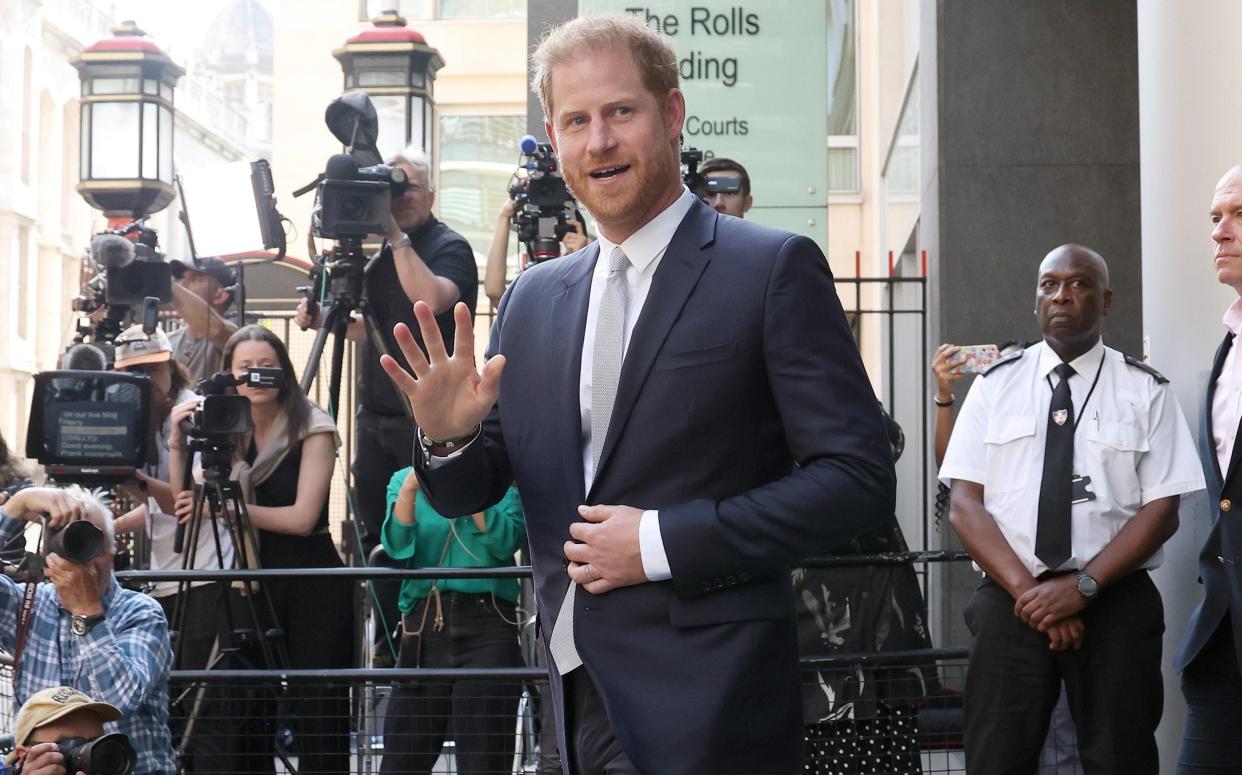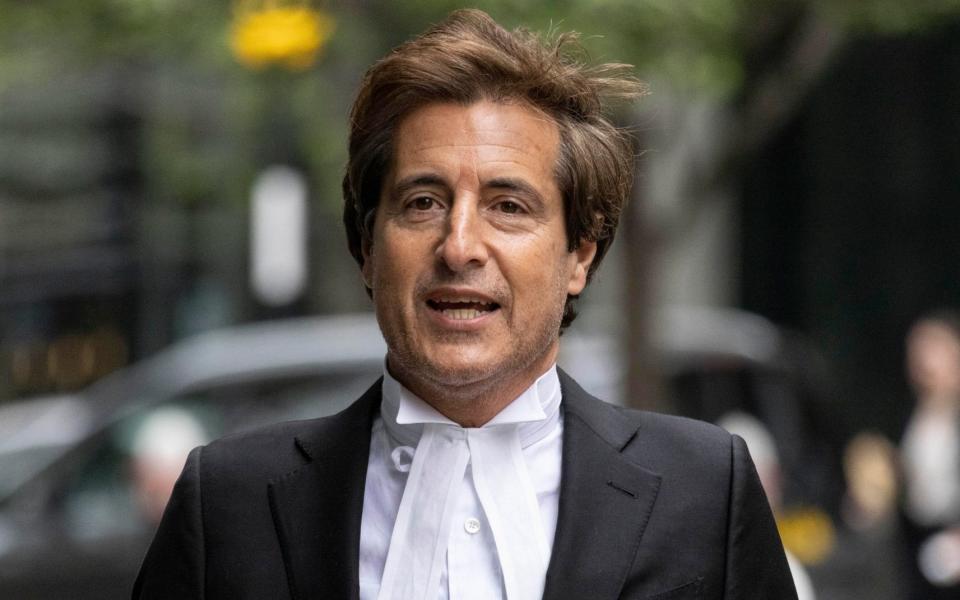Prince Harry ‘deliberately destroyed’ potential evidence, phone hacking case hears

Prince Harry “deliberately destroyed” potential evidence relating to his High Court phone hacking claim against the publisher of The Sun, it has been claimed, as a judge ordered him to explain himself.
The Duke of Sussex must personally disclose why and how drafts of his memoir, Spare, and messages exchanged with his ghostwriter were destroyed “well after” he sued News Group Newspapers (NGN) in 2019.
Mr Justice Fancourt said it was “troubling” that the documents and conversations, which likely contained references to unlawful information gathering, had been deleted when the case was already well underway.
He said efforts must be made to retrieve the messages sent between the Duke and JR Moehringer, the author.
The judge also ordered the Duke’s legal team to write to Sir Clive Alderton, the King’s private secretary, and Sir Michael Stevens, his treasurer and keeper of the Privy Purse, asking them to submit all records of communication with the Duke.
It came after Anthony Hudson KC, for NGN, suggested that the Duke had “deliberately destroyed” potential evidence.
‘Old hand at disclosure’
The Duke and more than 40 others are suing NGN over alleged unlawful information gathering and invasion of privacy. A trial has been scheduled for January 2025.
The publisher sought the release of emails as well as text messages and WhatsApp messages sent and received by the Duke, as well as material held on two encrypted hard drives.
The judge said the lack of documentation handed over so far by the Duke’s legal team was “rather remarkable” and gave him “cause for concern”.
He told the court: “I have also seen troubling evidence that a large number of potentially relevant documents and confidential messages between the Duke and the ghost writer of Spare were destroyed some time between 2021 and 2023, well after this claim was under way.
“The position is not transparently clear about what happened and needs to be made so by way of a witness statement from the claimant himself - what happened to the messages between himself and his ghost writer and whether any attempts were made to retrieve them.”
He added: “It seems to me inherently likely that matters would have been said which relate to the parts of Spare in which unlawful information gathering is discussed.”
‘Texting around the clock’
The judge also expressed disbelief that the majority of document searches made in relation to the case – for potential evidence of prior knowledge of unlawful information gathering – had been “dealt with by the Duke himself in California.”
In his own witness statement, Roddy Chisholm Batten,the Duke’s solicitor, claimed he was “an old hand at dealing with disclosure” as a result of his hacking claim against Mirror Group Newspapers.
However, the judge said it was “not appropriate in a case of this nature” for such searches to be made by the claimant personally.
“Sometimes, I have the impression that even the claimant’s lawyers don’t seem to grapple with the knowledge issue… so it would not be at all surprising if the claimant himself did not fully understand,” he told the court.
The judge also revealed that the Royal household had given “a large group of documents” to the Duke in 2020 – a development of which his own legal team was “wholly unaware” until this month.
In May 2008, Moehringer wrote about the process of writing the Duke’s biography for the New Yorker magazine.
“When we weren’t Zooming or phoning, we were texting around the clock,” he revealed.
“In due time, no subject was off the table. I felt honoured by his candour, and I could tell that he felt astonished by it. And energised.”

David Sherborne, for the Duke, told the court that the pair had communicated via Signal but that their chat history was wiped before the book was published in January 2023.
“I don’t know if your Lordship has ever used Signal, but you can delete it entirely. That is the benefit of Signal, it is more secure than WhatsApp,” he said.
“This was a highly necessary process, not to hide anything but to delete highly sensitive information about [the Duke] and the Royal family which, if leaked, would not only compromise his security but also be potentially damaging to the [Duke] and his family.”
Mr Sherborne said the three Hotmail addresses used by the Duke prior to 2014; spikewales@hotmail.com; spikewells@hotmail.com and bazasales69@hotmail.com, were no longer accessible.
However, his team has searched other email accounts that the Duke does have access to; namely h@sjpkp.com and ha@sjpkp.com, which span a period from January 2014 until April 2024. The original search for three keywords has been expanded to 55 search terms, as requested by NGN.
According to court documents, he has conducted “extensive” searches for data storage devices, including a physical search of his home in California.
He has also contacted Lord Christopher Geidt, Elizabeth II’s former private secretary, Sally Osman, the former director of royal communications, Sir David Manning, the former UK ambassador to the US and Nick Loughran, the Duke’s former deputy communications secretary, who said they did not hold anything relevant from the time period.
Mr Hudson accused the Duke of “obfuscating” and said that if he wanted access to documents from his former solicitors, or from the Royal household, he would be given them.
He accused the Duke of “trying to create an obstacle course” to prevent the publisher’s obtaining potential evidence and said his legal team had been dragged “kicking and screaming” to search a cache of 36,000 potentially relevant emails.
In response, Mr Sherborne said it had taken 130 hours to search 35,000 emails and that only “a handful” were relevant, describing it as an “utterly disproportionate exercise”.
The barrister said the Duke had nothing to hide and accused NGN of being “in the realms of total speculation.” He said claims that potential evidence was being hidden were “just a nonsense”.
The Duke was ordered to make an interim costs payment of £60,000.

 Yahoo News
Yahoo News 
